The Lessons Learned template is a tool to record and document the lessons learned from a project or activity. It should be done at the end of an activity or session to facilitate learning for future endeavors and improve the software development process.
The benefit of having these lessons learned is that instead of repeating the same mistakes, team members would learn from other people’s mistakes and try their best to avoid them.
Table of Contents
Lessons Learned Templates
Gain valuable insights and improve project outcomes with our comprehensive collection of Lessons Learned Templates. These templates provide a structured framework to document and analyze project experiences, successes, challenges, and key takeaways. By capturing lessons learned throughout the project lifecycle, you can enhance future decision-making, avoid repeating mistakes, and optimize project performance.
Our templates offer a variety of formats, including questionnaires, surveys, and report templates, making it easy to gather input from team members and stakeholders. With customizable sections for project details, observations, recommendations, and action plans, our templates ensure a systematic approach to knowledge transfer and continuous improvement.
By utilizing our pre-designed templates, you can streamline the lessons learned process and promote a culture of learning within your organization. Don’t miss out on the opportunity to harness valuable insights and drive project success – leverage our Lessons Learned Templates to maximize your project outcomes.
Why lessons learned are important?

The temporary nature of the projects causes the knowledge and experience learned in the projects to remain with the people, move away from the institution with the people, and the knowledge and lessons learned are forgotten in a short time.
In order for a learned lesson to be permanently in the memory of the institution, it must be recorded by clearing the subjective and emotional effects of the moment of the event.
Although the Lessons Learned method has been included in the PMI Standards for nearly 20 years, it has transformed into a different format in recent years due to the development of new generation web (WEB2.0) and new generation project management (PM2.0) understandings.
This method, which consisted of only a written record in its early stages, is beginning to acquire the features of a new generation of social networks gradually, from special software to an electronic form. This new culture; includes decentralized management, a participatory and collaborative environment, fast and transparent access to information, and flexibility.
Lessons Learned Register
The Lessons Learned Register is a document to record the knowledge acquired during the project for use in both current and future projects. Its primary objective is to gather lessons learned across the organization. Document your learning in a high-level format, but be sure to consistently capture the key project-related information so that other team members can follow your example.
Please create your own lesson learned, Register, and share it with the rest of the company. You can adapt any values or categories in the document to suit your requirements, making it truly personal to your organization.
Some Steps to the “Lessons Learned” Process
To implement the “Lessons Learned” Program in an institution, first of all; Issues such as ensuring terminology unity, seeking answers to why and how in line with the objectives of the institution, the principle of approach, selection of the method and method to be used, integration with other processes of the institution, selection of the program manager and harmonization with the corporate culture should be put on the agenda.
- The process of developing a “Lessons Learned Database” is handled in the following stages:
- Identification of a true lesson learned
- Recording the lesson learned
- Storage of information (Database)
- Managing information
- Searching, accessing, and finding information
- Evaluation of lesson learned
- Making the course a part of the corporate culture by repeating it.
Writing a Lessons Learned Report
For this report, which is usually prepared at the end of the project in projects, PMI recommends preparing it at the end of each stage. Especially in long projects, waiting for the end of the project will mean forgetting the lessons learned.
You can add both good and bad events to this report, where the end of the stage is reached. In general, the content may include the following topics.
Events that cause deviations from plans with their explanations.
- Benefits, difficulties, and deficiencies of technically used methods and tools
- Processes, workflows, time and cost estimates, and risks that you will suggest being changed in the future.
- The answer to the question of what we would do differently if the completed phase reappears in another project.
- Lessons learned about the project parties. Predictions about how the attitudes and behaviors of the parties in the past stage may be reflected in the next stages and warnings to the next stage responsible.
Information Resources:
- Observing processes
- Records have taken daily
- Regular meeting notes
Last word:
Lessons learned from projects are converted as quality criteria by the Project Office unit. Thus, when assigning new projects to project managers, mistakes made in the past, which should be considered at every stage, even activity, are presented to the project manager. Thus, different team members are prevented from making the same mistake again.
FAQs
What are Lessons Learned?
Lessons Learned are insights and knowledge acquired through experience, which can be used to improve future projects or endeavors. They are reflections on what went well, what didn’t, and what could be done differently in the future.
Why are Lessons Learned important?
They are crucial for continuous improvement. By understanding what worked well and what didn’t, individuals and organizations can better plan and execute future projects, avoiding past mistakes, and building on successes.
How are Lessons Learned documented?
Lessons Learned are usually documented in a structured format, which may include the description of the situation, what was learned, recommendations for the future, and other relevant information. They can be stored in a dedicated database or repository for easy access and reference.
When should Lessons Learned be captured?
They should be captured throughout a project and especially at its conclusion. Continuous capture allows for immediate adjustments, while end-of-project reflections ensure a thorough review of overall performance
Who should be involved in the Lessons Learned process?
All stakeholders should be encouraged to participate, including project team members, project managers, sponsors, and even customers or end-users where appropriate.
What is a Lessons Learned meeting?
A Lessons Learned meeting, often referred to as a retrospective or post-mortem, is a structured review held at the end of a project or at major milestones to discuss what went well, what didn’t, and what could be done differently in the future.
How can Lessons Learned be used in future projects?
Lessons Learned can be reviewed at the start of new projects to inform planning and decision-making. They can also be used to train and educate team members, enhancing their ability to manage similar situations in the future.
What are the challenges in capturing and using Lessons Learned?
Challenges may include a lack of willingness to share failures, insufficient time allocated to the process, and poor documentation or accessibility of Lessons Learned from past projects.
How can organizations encourage a culture of sharing Lessons Learned?
Creating a safe and open environment where individuals feel comfortable sharing and discussing both successes and failures is crucial. Moreover, having a structured process and dedicated resources for capturing, documenting, and sharing Lessons Learned can further promote this culture.
Are there tools available for managing Lessons Learned?
Yes, various project management software and knowledge management systems offer features for capturing, organizing, and sharing Lessons Learned. They can help in structuring the process and ensuring that valuable insights are effectively shared and utilized.



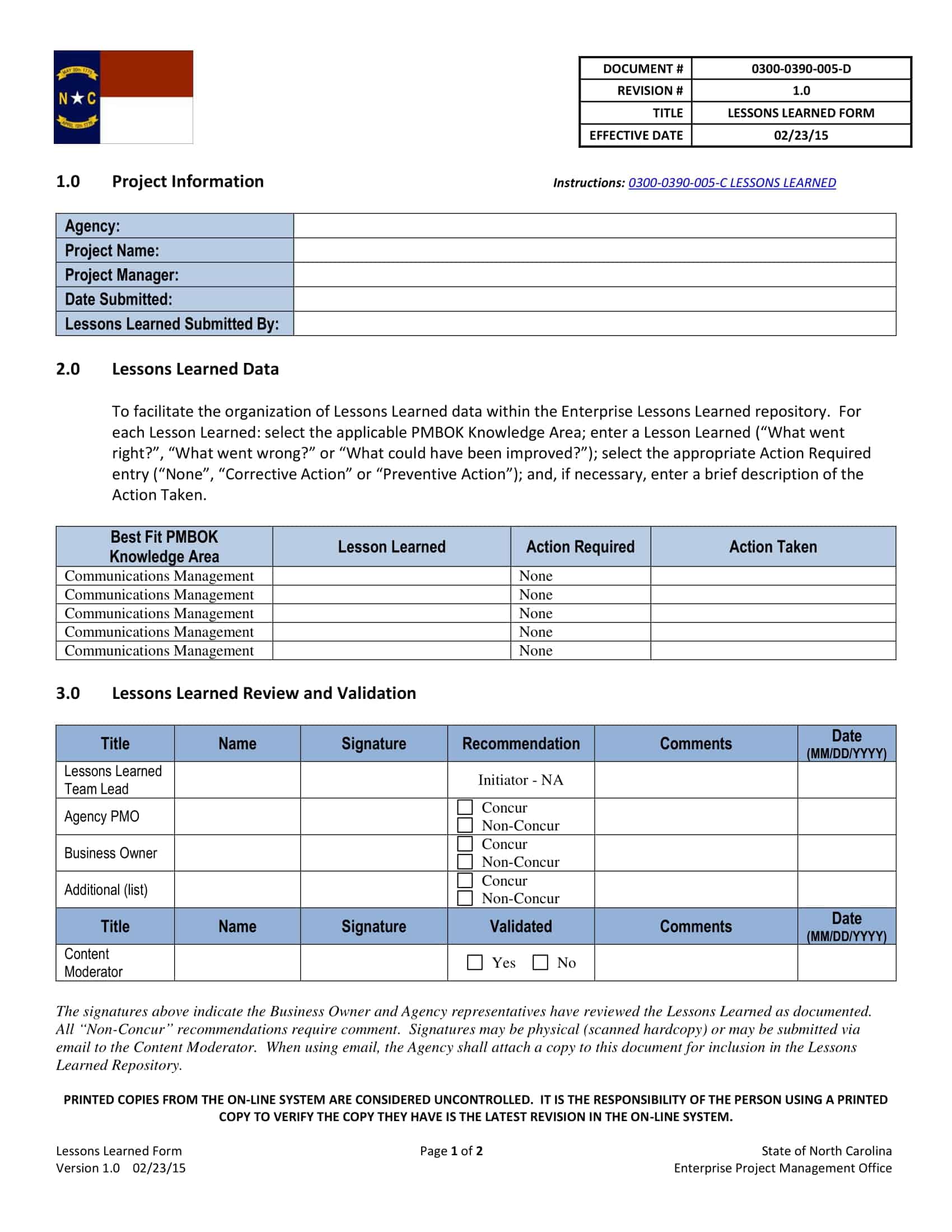
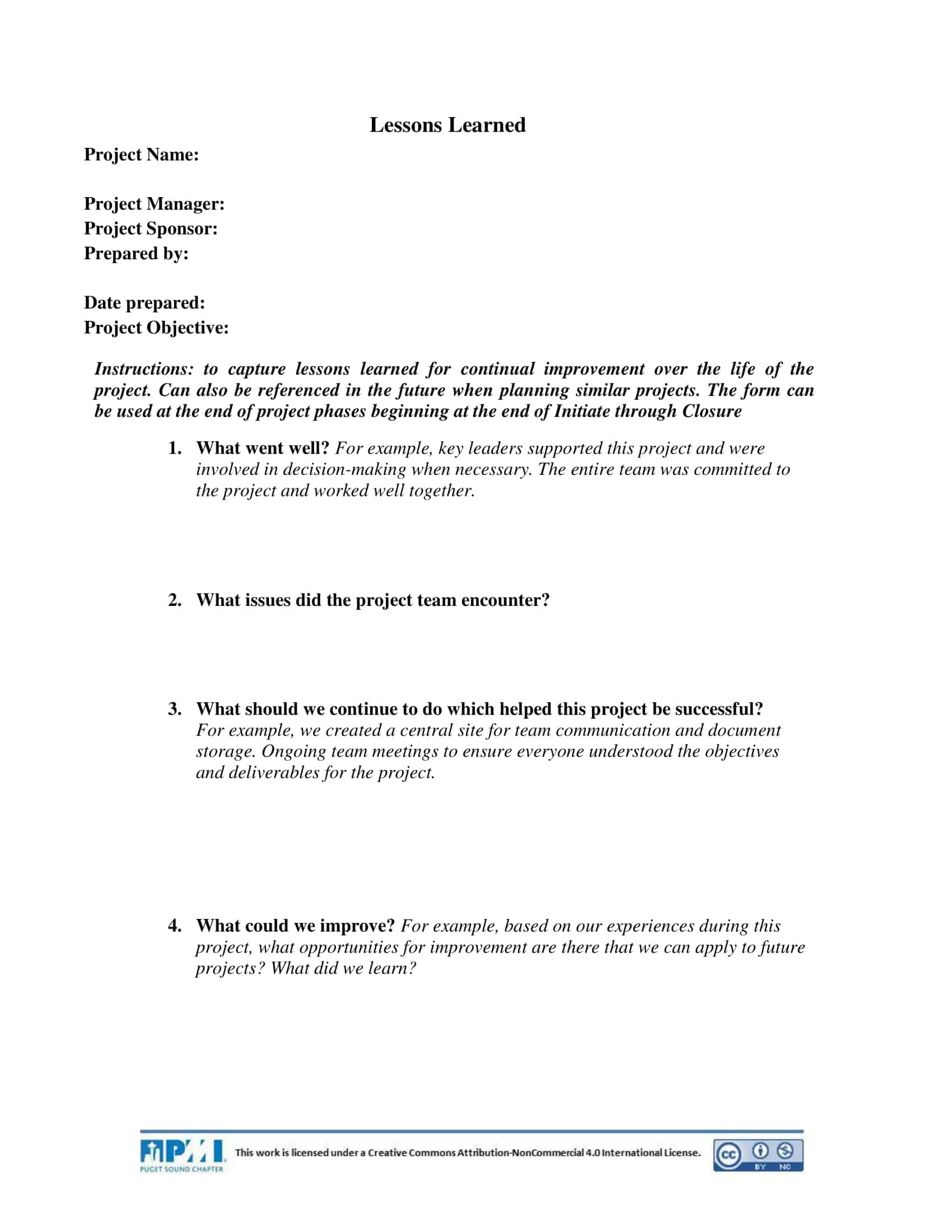
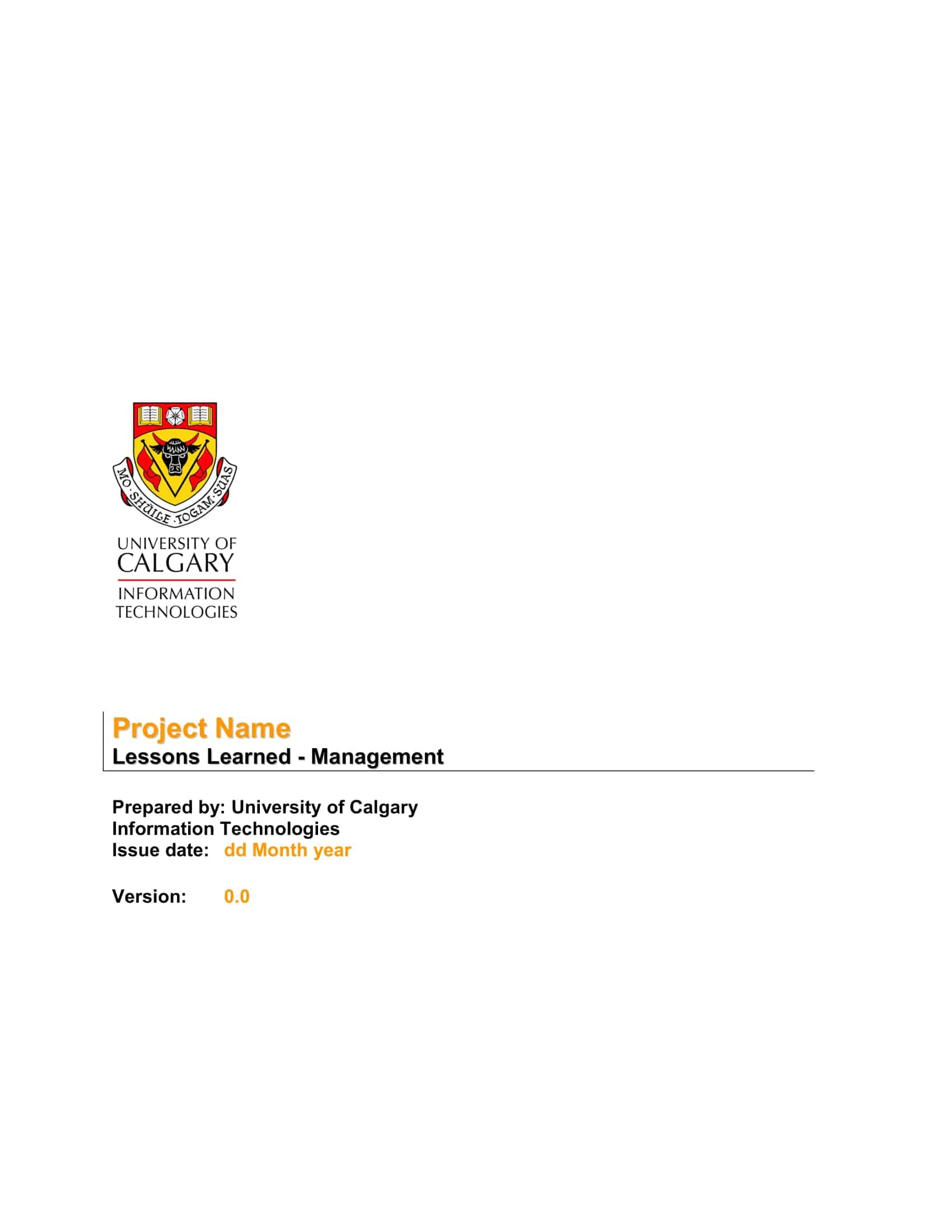



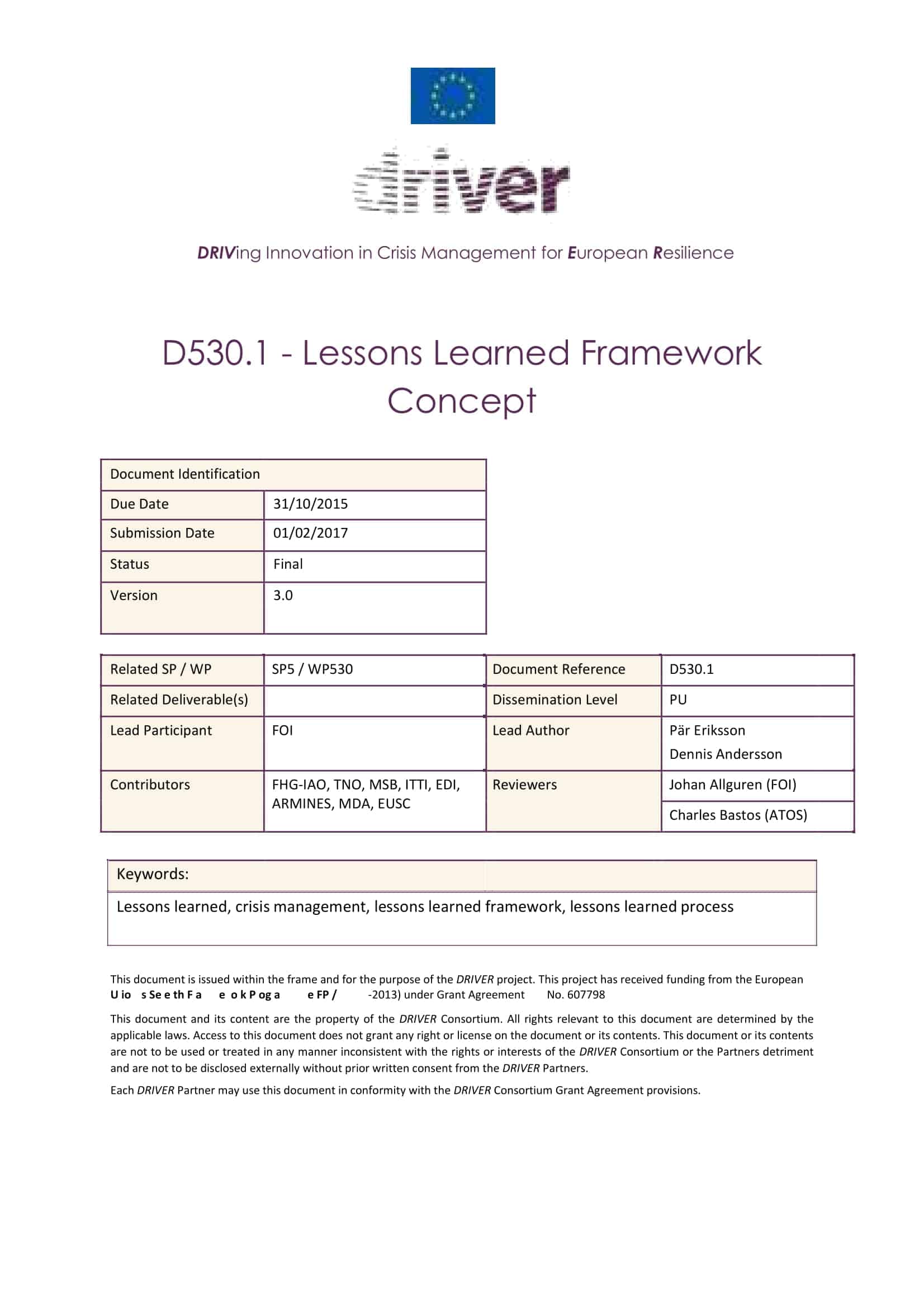


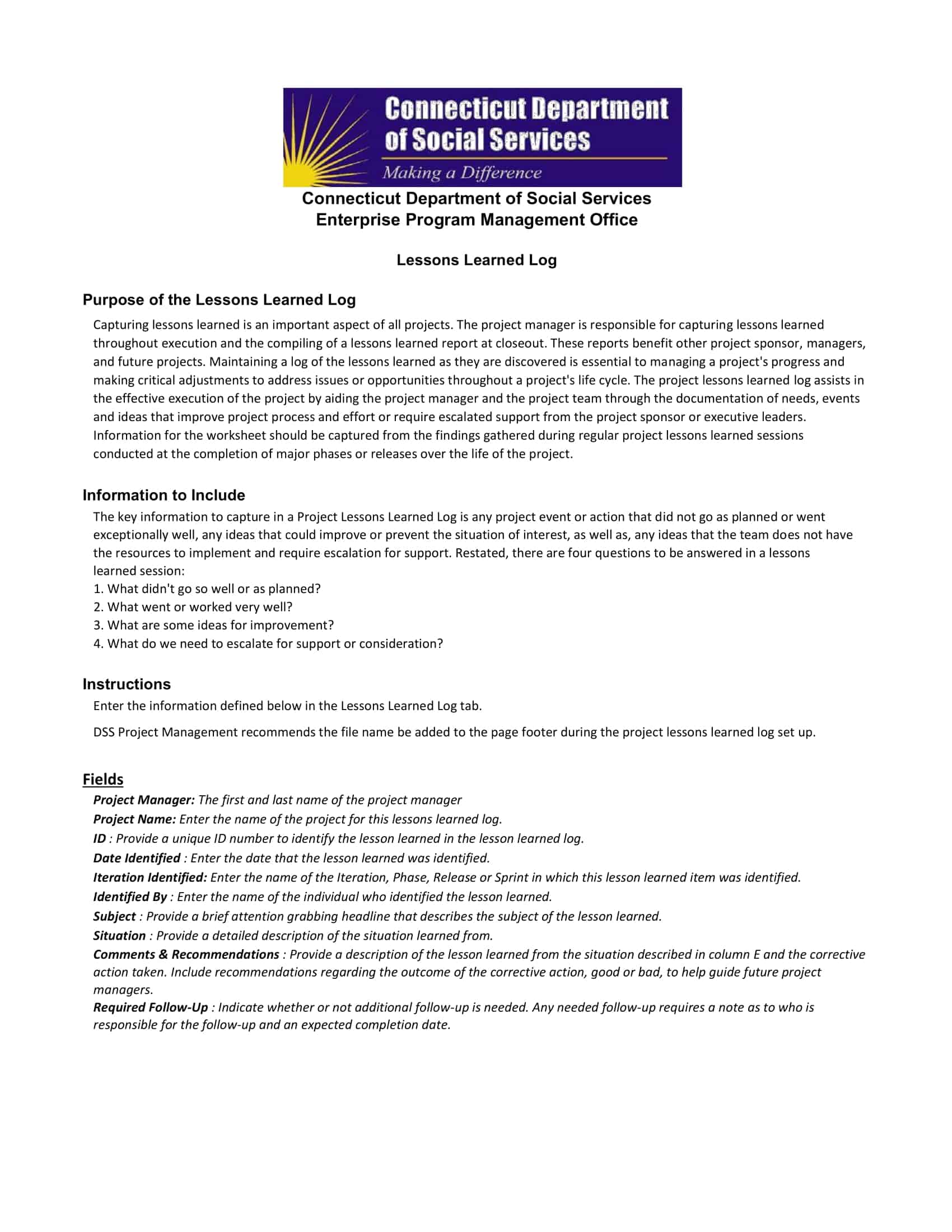








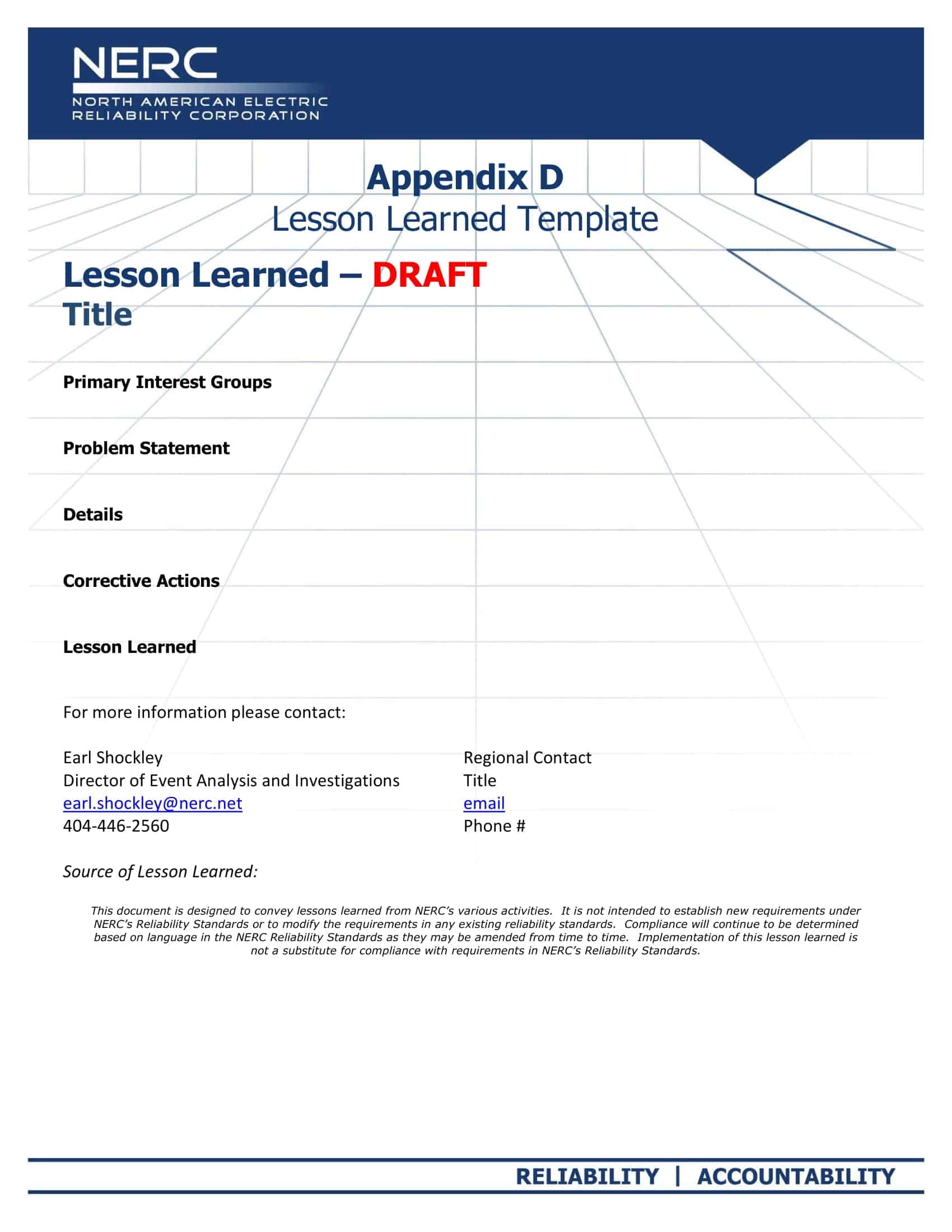





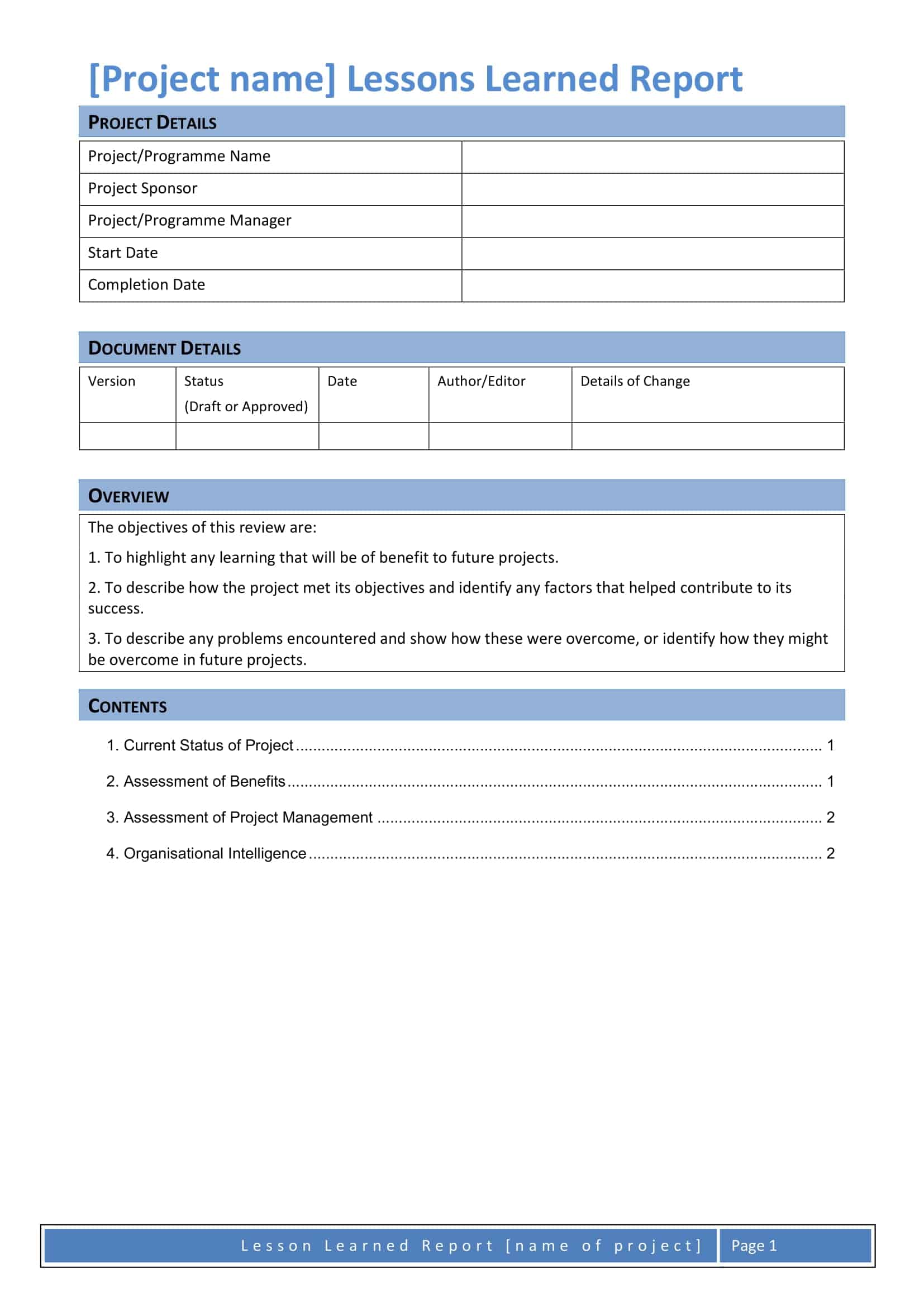










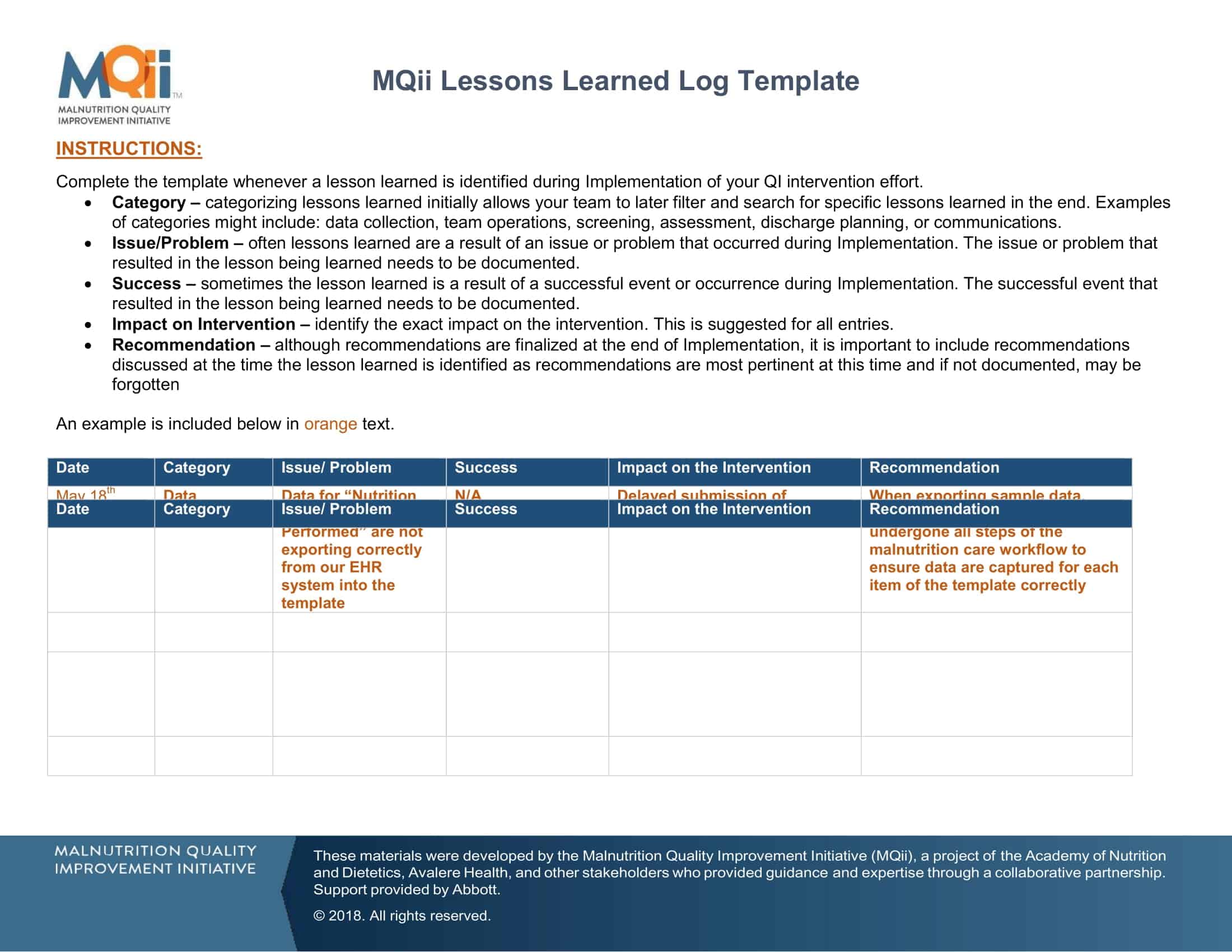









![Free Printable Credit Card Authorization Form Templates [PDF, Word, Excel] 1 Credit Card Authorization Form](https://www.typecalendar.com/wp-content/uploads/2023/06/Credit-Card-Authorization-Form-150x150.jpg)
![Free Printable Stock Ledger Templates [Excel,PDF, Word] 2 Stock Ledger](https://www.typecalendar.com/wp-content/uploads/2023/08/Stock-Ledger-150x150.jpg)
![Free Printable Financial Projections Templates [Excel, PDF] 3 Financial Projection](https://www.typecalendar.com/wp-content/uploads/2023/05/Financial-Projection-1-150x150.jpg)
